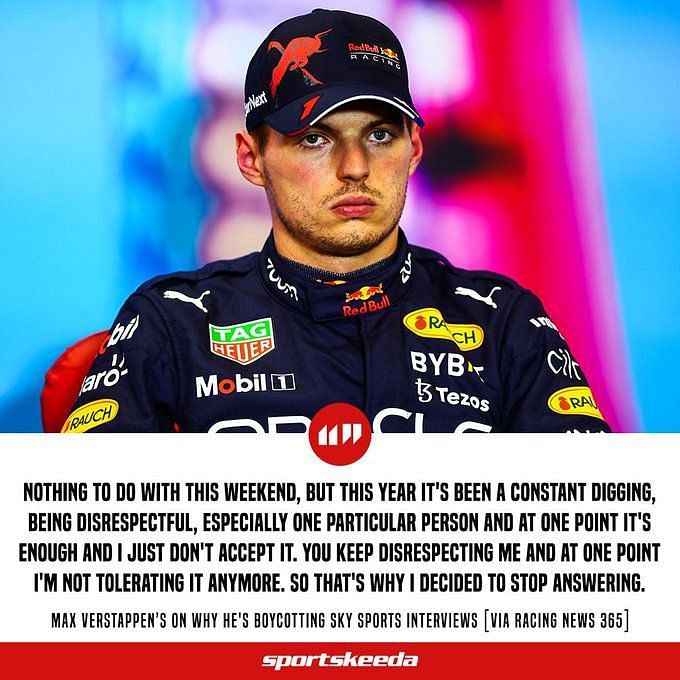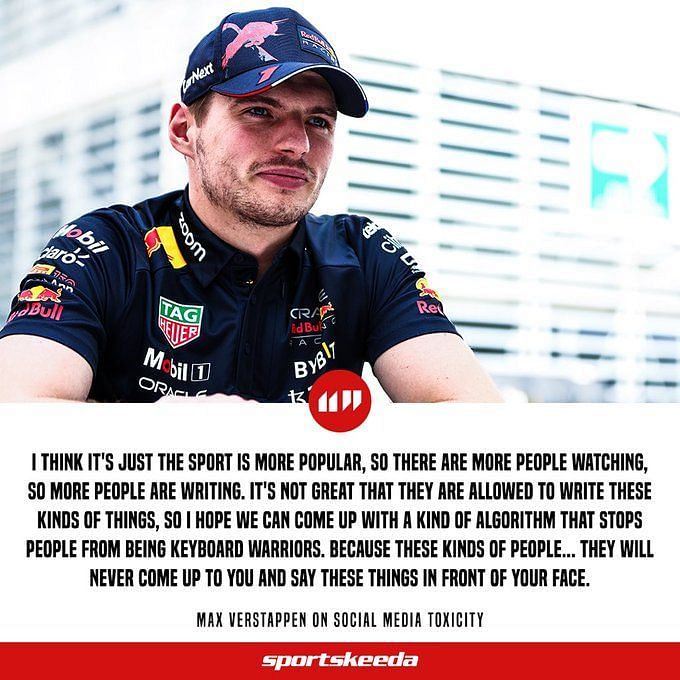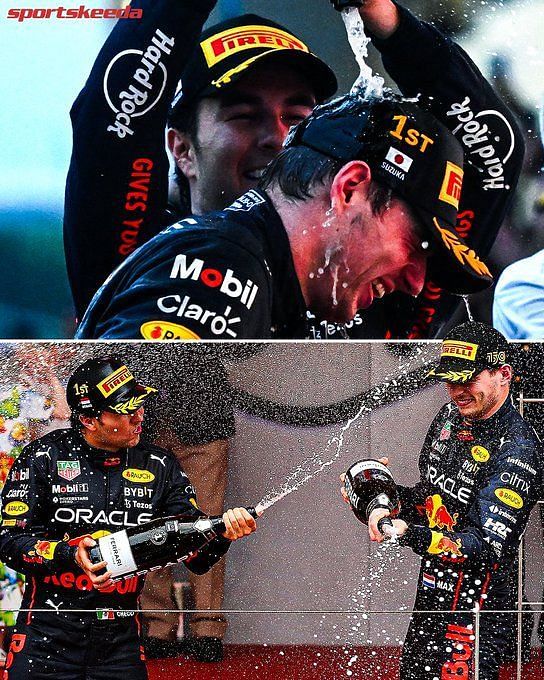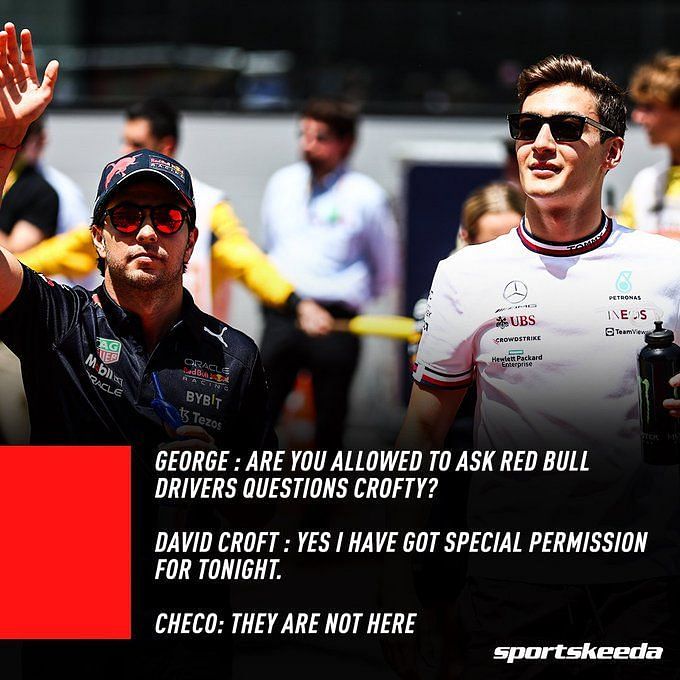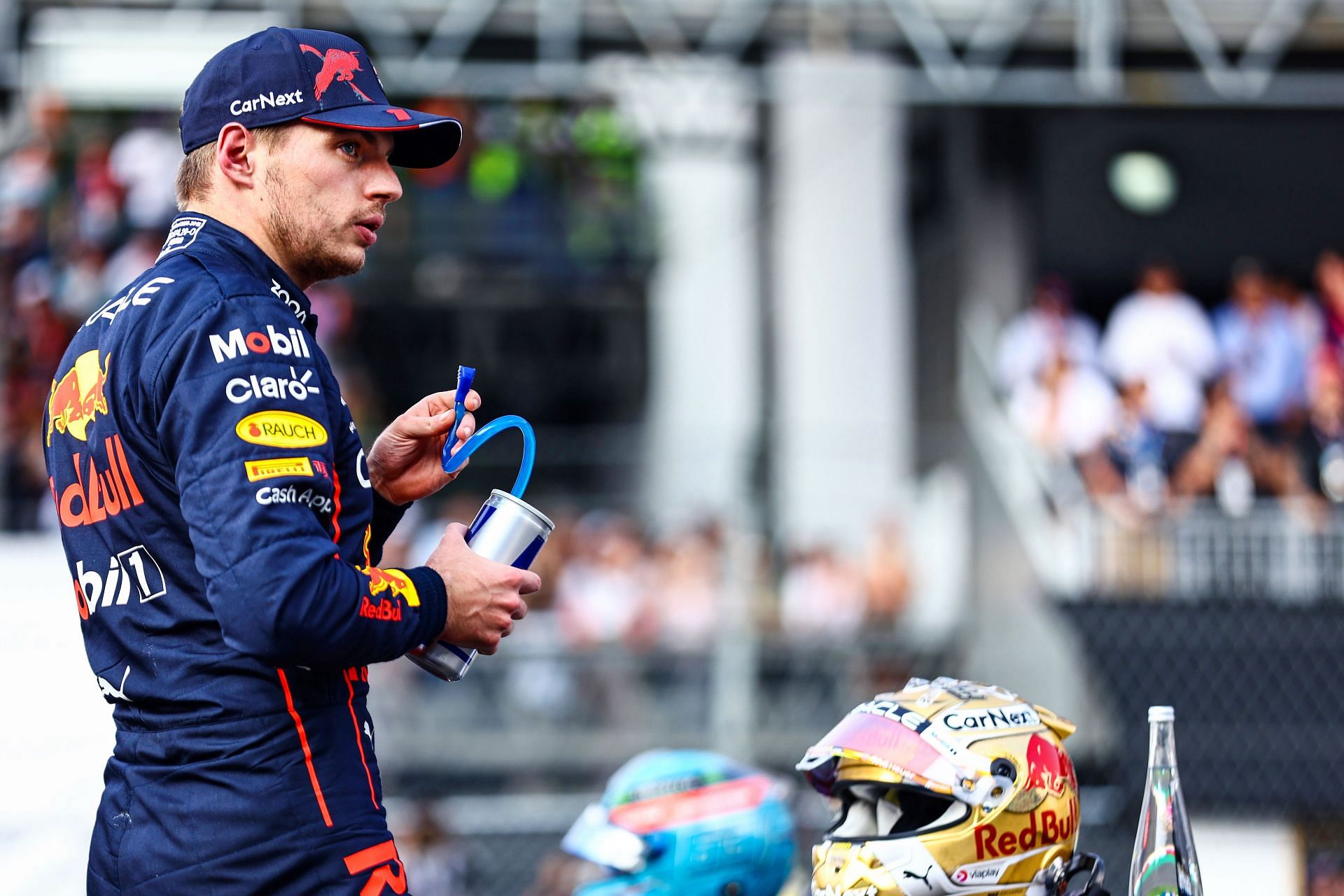
Max Verstappen's boycott of Sky Sports sparks the 'British-Bias' debate in F1 once again
Max Verstappen dropped a bombshell during the 2022 F1 Mexican GP when both the driver and his team declined Sky Sports' interviews.
With the entity being the main F1 broadcaster in many of the key markets across the world, Verstappen's choice naturally raised a few eyebrows.
Speaking to the media after winning his 14th race of the season, Max Verstappen commented on his boycott of Sky Sports. He said it had to do with the 'constant disrespect' that not only he but his team was subjected to all season. He said:
“It had nothing to do with this weekend, but this year has been a constant, kind of like digging and being disrespectful, especially from one particular person. At one point, it’s enough, I don’t accept it."
According to reports from multiple outlets, the 'one particular person' has been singled out as Ted Kravitz and his commentary over Max Verstappen's title win last season.
After the 2022 F1 Mexican GP, Red Bull boss Christian Horner clarified that the boycott was for one race and it will be business as usual from Brazil. According to Horner, the act was all about sending a message and that had already been achieved.
What this boycott was however able to do was once again reignite the debate around the F1 coverage's 'British-Bias'.
Was Max Verstappen's Sky Sports 'Boycott' justified?
The answer to this question is not that simple. First of all, the Red Bull driver is free to choose who he wants to talk to and who he doesn't. According to multiple publications, the contentious bit was what Ted Kravitz said post the 2022 F1 US GP where Max Verstappen beat Lewis Hamilton to win the race.
Kravitz first referenced how Lewis Hamilton was robbed of the title in 2021 in Abu Dhabi as he said:
"(Hamilton) doesn't win a race all year and then finally comes back at a track where he could win the first race all year, battling the same guy who won the race he was robbed in the previous year, and manages to finish ahead of him. What a script and a story that would have been. But that's not the way the script turned out today, was it?"
Kravitz would further go on to insinuate that the only reason Verstappen beat Hamilton was 'pretty much because of Adrian Newey'. He said:
"Because the guy that beat him after being robbed actually overtook him, because he's got a quicker car, because of engineering and Formula 1 and design, and pretty much because of (Adrian Newey) over there."
Kravitz ended the monolog by saying that Max Verstappen doesn't seem to be a driver capable of winning a championship in a normal way, saying:
"Verstappen is around the (Austin) paddock; he seems very happy with himself. He doesn't seem to be a driver capable of winning a championship in a normal way."
This is not the only instance when Ted Kravitz or other Sky Sports members have made such comments. Earlier in the 2022 F1 Mexican GP weekend, Simon Lazenby claimed that Max Verstappen's two world titles were a result of Red Bull's cost cap breach.
There is a clear indication that the monolog by Ted Kravitz post the F1 US GP was not the reason behind the boycott. The decision was a result of the accumulation of things that have been said about Red Bull and how often the incident in Abu Dhabi has been brought up.
Now, to answer the question, was the boycott justified? In the end, it comes down to Max Verstappen. While there is evidence that he has been disrespected, it's entirely up to him where he wants to draw the line.
Now, coming to the debate over the inherent 'British-Bias' that the F1 coverage gets called out for by the fans.
The 'British-Bias' debate in F1 coverage
For reference, we talked about this in detail in our feature on 'British-Bias' in F1 and how the sport can address it. The conspiracy theory cooked up around Yuki Tsunoda's safety car-inducing DNF at the 2022 F1 Dutch GP, which caused a social media storm. Red Bull strategy engineer Hannah Schmidt was the target of horrible abuse by Lewis Hamilton fans as a result.
Moving on from that, what has been interesting has been the reaction from the British media to the Sky Sports boycott by Max Verstappen. One publication compared Verstappen to Vladimir Putin. Another dug into the Dutchman's past when the Red Bull driver used racial slurs against Lance Stroll. There's a third publication that called Christian Horner a "loser".
What Verstappen's past indignation has to do with him boycotting Sky Sports is hard to understand and looks completely misplaced.
Max Verstappen has every right to feel aggrieved by this targeting and he can even claim that this vilification has been going on since he started battling for the title.
The fact that a publication that used to be a benchmark of F1 excellence can come up with an 'Open Letter to Max Verstappen' was shocking for any F1 fan. A publication like this leaves a lot to be desired when it comes to impartial journalism.
It's an F1 problem, not a Sky Sports problem
With the reigning world champion at loggerheads with the official F1 broadcaster, it does not look good. But could Sky Sports be blamed for having commentary or inherent bias toward British drivers? Especially since Sky Sports is essentially a British broadcaster and not only caters to that audience but generates extra revenues from them.
Not really, Sky's commentary and narrative building, even if it is leaning towards the Brits, is nothing to be frowned upon. It's not Sky Sports' fault either.
It is, however, a shortcoming of F1 as it allows Sky Sports to have the monopoly. What F1 needs, on the other hand, is a more neutral broadcasting. It can either achieve that by revisiting its agreement with Sky Sports or investing capital into F1 TV and having its in-house production for the global broadcast. For a detailed reference, click here.
We're at a very interesting point in F1 as the reigning world champion has called out the biggest broadcaster of the sport. It will be interesting to see what happens next and whether there is constructive change on the way, which everyone will undoubtedly be hoping for.

